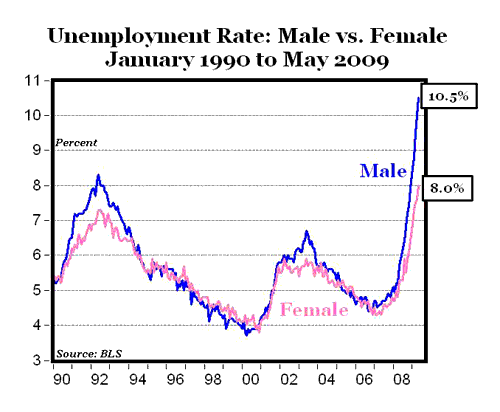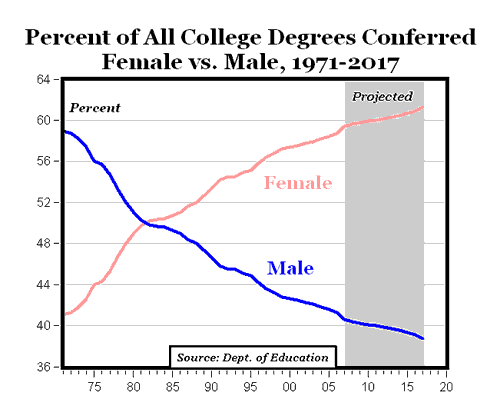

As the top chart above shows, the male-female jobless rate gap of 2.5% is truly unprecedented. During and following the last two recessions of 1990-1991 and 2001, the male unemployment rate was about 1% higher than the female unemployment rate. But there has never been any recession in U.S. history, or any time during even a non-recessionary period, when the male unemployment rate was this much (2.5%) higher than the female jobless rate.
As the bottom chart above shows, 1981 was the last year that men received more college degrees than women, and the female-male “degree gap” has increased in every year since, and is projected by the Department of Education to increase further through 2017 when women will receive 158 colleges degrees (at all levels) for every 100 degrees received by men.
On this Father’s Day, we should maybe recognize that we are witnessing what might possibly be a permanent structural change in the labor market and higher education, which will have profound and lasting implications for family roles, career choices, divorce settlements and child custody decisions by family courts, public policy, etc.
For example, just thinking out loud here, would it be possible in the future that a college-educated, professional woman working full-time would pay alimony to her unemployed ex-husband who hasn’t found employment since the Great Mancession of 2008, and he might also get primary custody of the children and be paid child support?
- Bulenox: Get 45% to 91% OFF ... Use Discount Code: UNO
- Risk Our Money Not Yours | Get 50% to 90% OFF ... Use Discount Code: MMBVBKSM
Disclaimer: This page contains affiliate links. If you choose to make a purchase after clicking a link, we may receive a commission at no additional cost to you. Thank you for your support!



Leave a Reply